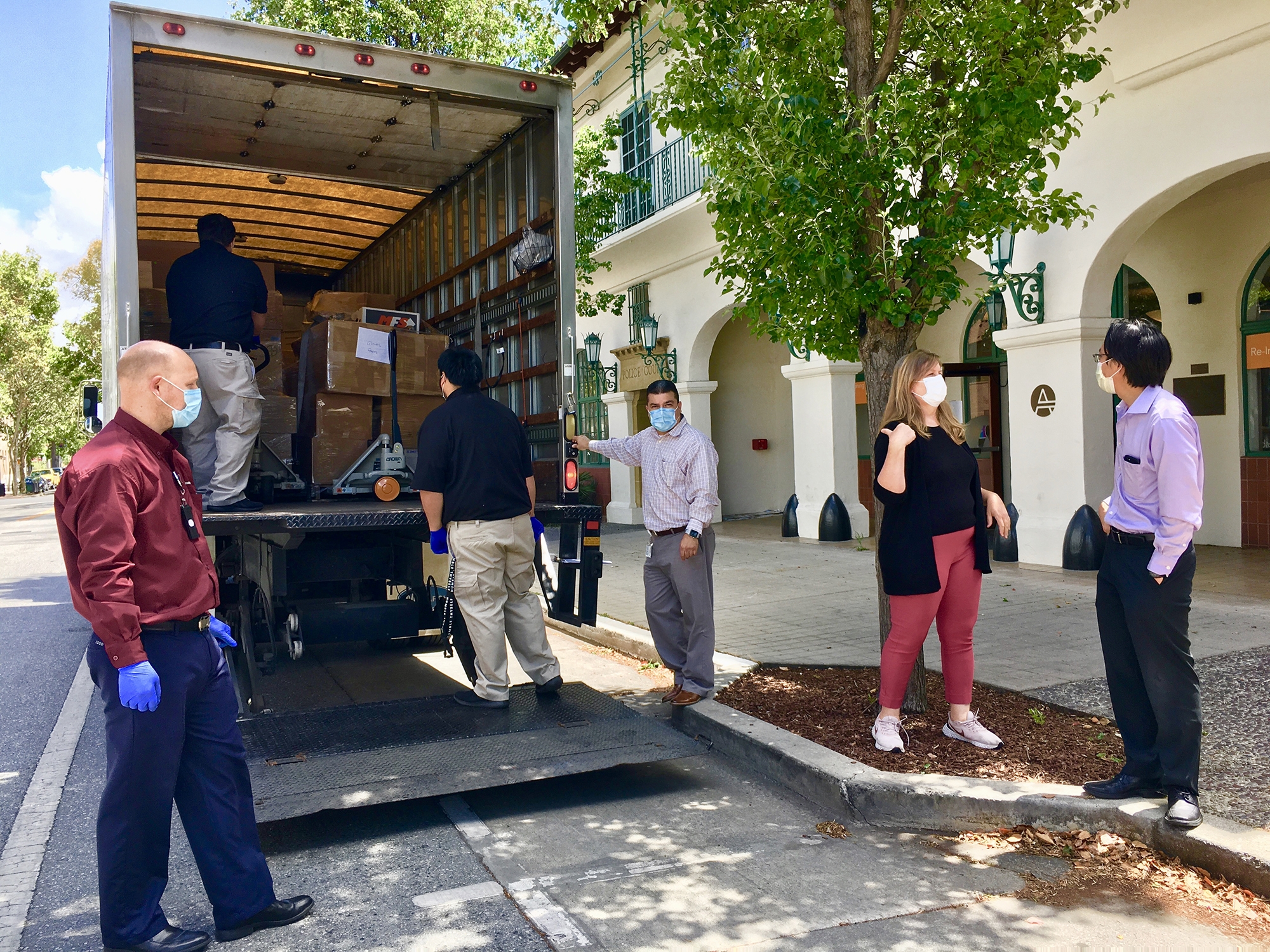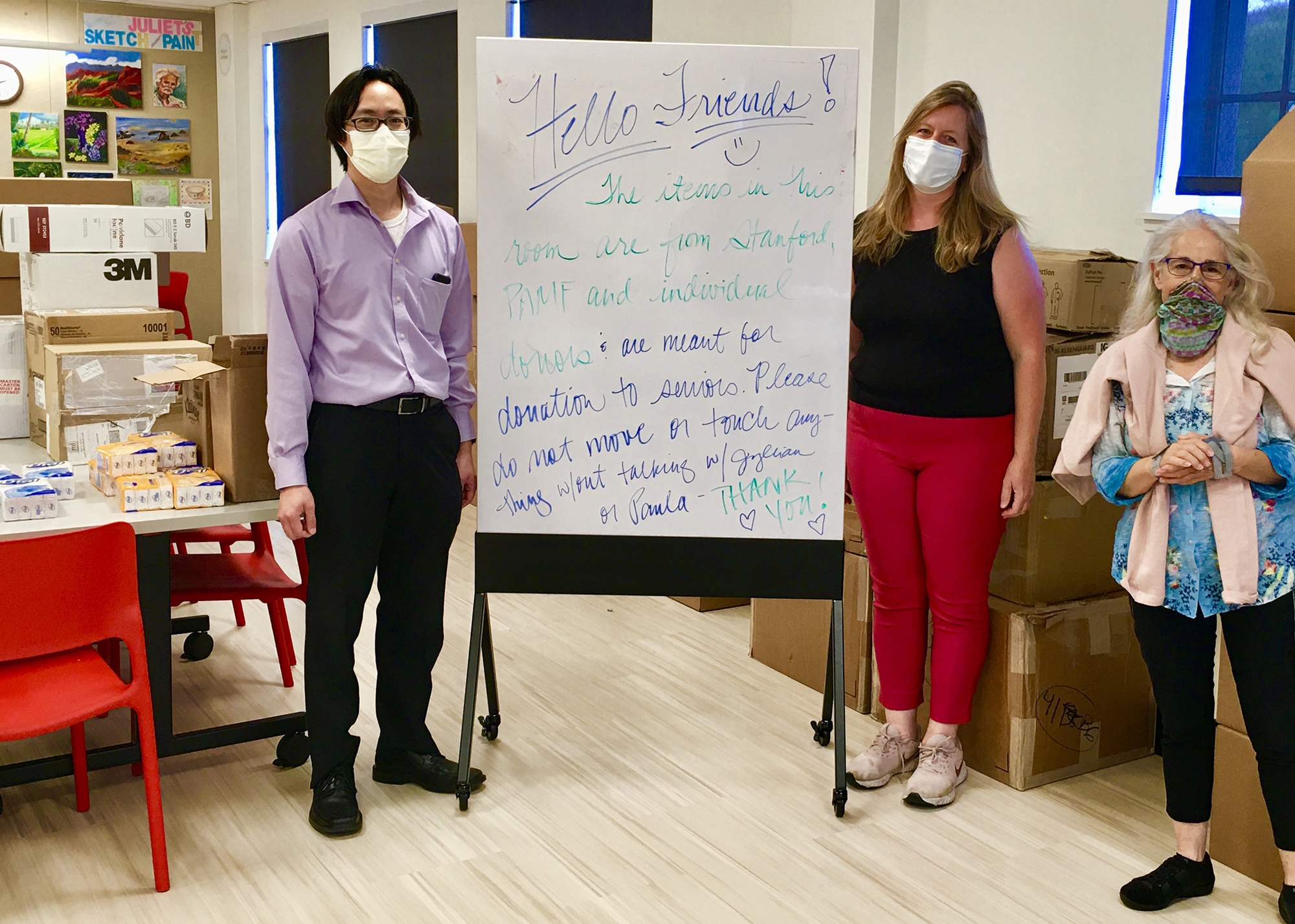As new coronavirus cases continue to be reported, senior care facilities have emerged as hot spots for the disease, according to data that the California Department of Public Health has been collecting since mid-April.
Skilled nursing facilities account for 1,835 of the state's 4,286 recorded COVID-19 deaths. In Santa Clara County, long-term care facilities — including assisted and independent living centers and board-and-care homes — account for approximately 44% of its 142 recorded COVID-related deaths, according to state and county data released on June 1. Vi at Palo Alto, Palo Alto Subacute and Rehabilitation Center, Lytton Gardens and Palo Alto Commons are among the 39 facilities in Santa Clara County that have reported at least one case since the outbreak, according to the county's public health department, which does not include deaths at individual facilities in its data. Webster House and Channing House also reported cases, according to the state health department.
Patient advocates say testing and personal protection equipment are key to curbing the spread of the virus at both skilled nursing centers and non-medical senior care facilities. While the county's new COVID-19 testing task force rolled out recommendations on May 14, followed by an updated order from the state health department on May 22, to establish baseline testing for skilled nursing centers and congregate living facilities, there is no plan in place for how facilities will comply.
There also is no coordinated system in place to provide senior care centers with personal protective equipment, such as masks, which are included as part of the mandates outlined in the state's new order.
"The COVID-19 pandemic shows the deficiencies that we've been talking about for many years in the area of senior care," said Dr. Mehrdad Ayati, adjunct professor of medicine at Stanford University, who has been advocating for more state leadership in the purchase and distribution of protective gear for long-term care communities.
"Traditionally, a skilled nursing home was not supposed to be like a hospital, taking care of very sick people, but this has happened because of the complexities of the aging population these days," he said.
Skilled nursing homes, which are regulated by the state, as well as unlicensed facilities that aren't set up to provide medical care, such as assisted living centers, were unprepared for a pandemic, Ayati said.
"They didn't have masks; they didn't have gloves. They didn't have the very basic material that is necessary for a medical center," he said.
Dr. Albert Lam, chairman of the Department of Geriatric Medicine at Palo Alto Medical Foundation, said these facilities have been forgotten about as most attention has been focused on getting personal protective equipment to hospitals.
"It just doesn't make sense for 1,200 nursing facilities and 7,000 assisted living centers in California to each be fending for themselves," Lam said. "None of these very important providers have been allocated (personal protective equipment) in any sort of organized way. It's not the fault of any one community. This is really a national issue."
Lam explained that hospitals have existing supply chains and larger budgets than most senior care facilities, which don't typically require these items. This has made it difficult for them to secure protective equipment during the pandemic.
Rather than wait around for the government to figure out a way to get supplies to these facilities, Lam, Ayati and a coalition of local doctors from PAMF/Sutter Health and Stanford University have launched a program to fill the void.
Through Operation PPE, the group has gathered face shields, N95 masks, gowns, gloves, shoe covers and other protective equipment donated by friends, neighbors, overseas family members, medical providers and just about anywhere else they could find needed items to distribute to local senior care facilities.
Ayati said prior to the stay-at-home order, he took his personal — and limited — supply of gloves and masks, put them in the back of his car and started delivering them to various nursing centers.
"Operation PPE is really our response to a dire lack of personal protective equipment for providers of elder patients and elderly patients that are not in the hospitals," Lam said. "We have to give people the supplies they need to be safe."
Just wearing a mask can dramatically reduce the disease's transmission, Lam emphasized.
At the end of May, the group teamed up with Avenidas senior center in Palo Alto to help with its distribution efforts. The nonprofit distributed supplies to 30 facilities up and down the Peninsula this week.
Lam said before teaming up with Avenidas, Operation PPE initially was able to distribute a handful of supplies that the coalition was storing at Palo Alto's Webster House to about 17 facilities. Retired registered nurse Pat Robinson surveyed local facilities and created a spreadsheet detailing what each needed. People were driving from as far away as Santa Cruz to pick up a box of supplies, he said.
As more supplies started coming in, however, the group realized it needed outside help and reached out to Avenidas, which has many connections in the community through its various programs that provide assistance to seniors.
"They told me, 'We are very busy physicians and we need support,'" said Paula Wolfson, manager of Avenidas Care Partners program. "You know, what better way to spend our time right now than in this process? And so everybody said 'yes,' and then it quickly came into play."
A room at the Avenidas building at 450 Bryant St. in downtown Palo Alto now is being used as a warehouse where about a half dozen Avenidas volunteers sort and track inventory brought to the center.
Jyllian Halliburton, Avenidas volunteer director who is working as the operational and logistics coordinator for the joint effort, which has been dubbed Operation PPE/Operation S.O.S (Save Our Seniors), said they have inventoried donations large and small from all over the world: 4,236 face shields, 14,000 pairs of gloves, 2,056 gowns, 4,142 N95 masks, and 500 surgical masks.
"There are all of these are huge boxes of gowns and gloves and face shields, so we feel now we're kind of helping to save lives," said Wolfson, who is among those helping to sort items.
Halliburton said the idea is take the donated supplies and divide them evenly among facilities so that everyone gets an equal amount.
"This is a heart-warming story because we're all coming together, but it's also a story that we don't know when it ends," Lam said. "There's an ongoing need, and we need to get the word out. We think that people have pockets of (supplies) that they don't know where to send. Maybe if we can get those supplies out there ... maybe we can reduce transmission in the community."
Ayati said the group is already preparing for a second wave of the virus.
"If there's going to be a second wave that operates, it will happen exactly in the same places," Ayati said. "(Senior) facilities always will be a place because they are the best incubators for viruses.
"The COVID-19 had a very painful lesson for us, but I believe it was not only painful but was very valuable for us," he added. "We cannot go back to the same operation that we were doing in the past. We need to change it."
For information on how to donate personal protective equipment for senior facilities, or items like soap and hand sanitizer for local seniors, contact Avenidas at 650-289-5400.
Find comprehensive coverage on the Midpeninsula's response to the new coronavirus by Palo Alto Online, the Mountain View Voice and the Almanac here.




Comments